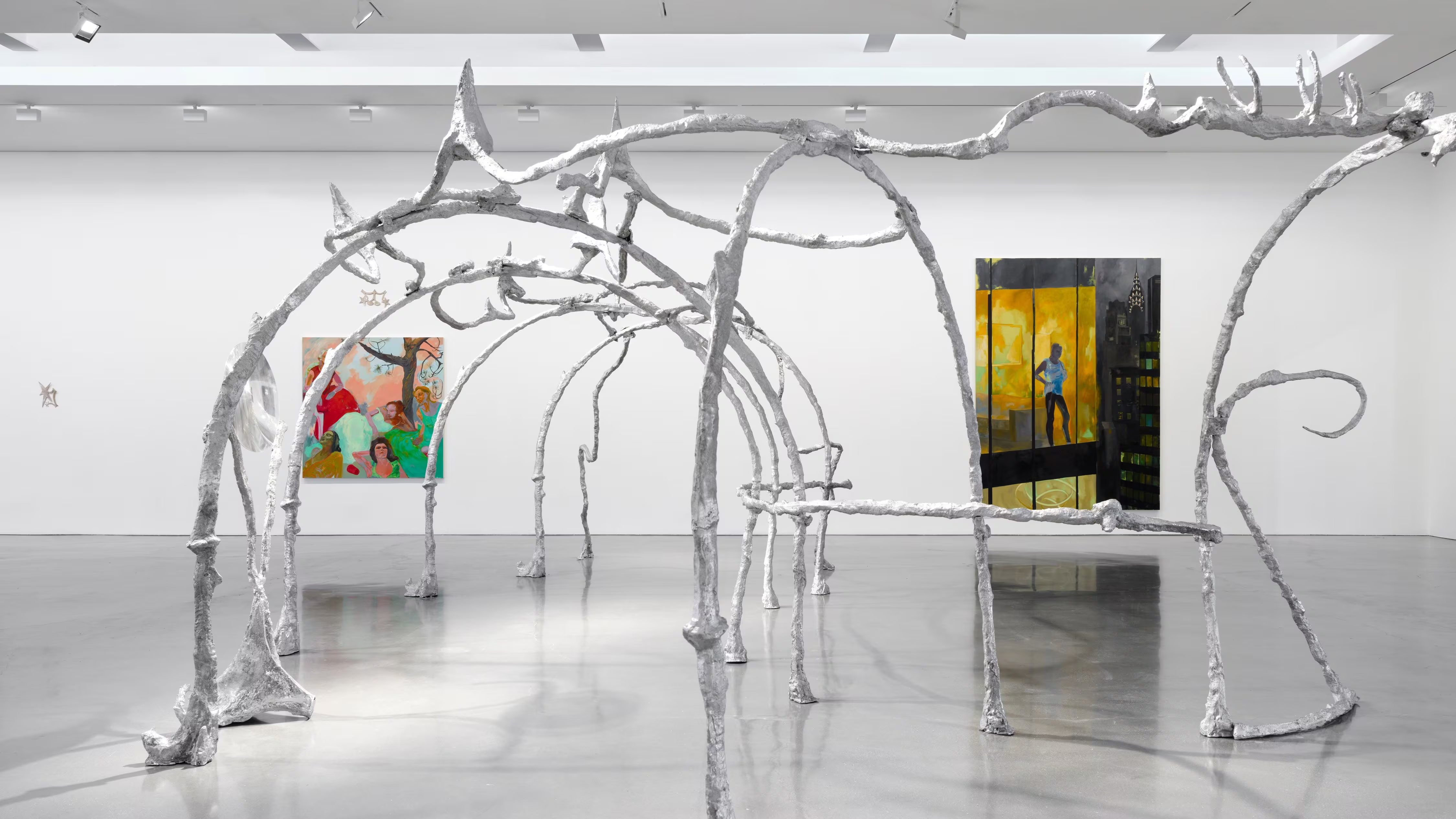.jpg)
Thirty years into their poetry practice, CAConrad made a big change. They started using rituals to anchor themself in the present. “I needed a new relationship to time,” they explain, recalling their state of disconnection before. They named their first ritual “the RED poem,” and outlined a series of simple actions: eating only red food for a day (“beet juice, red fruits, hot ones”) and wearing a red wig, the particular headpiece scavenged from the dumpster behind a beauty academy. “This wig,” they recall, “went down to my waist, and it was half permed, very badly, and half straight.” As expected, the visual impact elicited “a lot of nonverbal communication” from onlookers, and Conrad recounts how this attention, as it fit into the overarching experiment, proved successful in anchoring them in the moment. When they sat down to put words on the page, magic happened. “It’s the most present I believe that I ever have been writing.” They realized something else, too: that modifying how they moved through the world could orchestrate language. “Without the ritual, the poem I wrote that day wouldn’t exist.” Now, almost 20 years later, Conrad does these kinds of somatic exercises every day.
The 58-year-old poet, whose admirers include fellow writers Eileen Myles and Ocean Vuong, draws a line between their need for such strategies provoking hyper-presence and an avoidant way of being they inherited as a child. Growing up in the 1960s and ’70s in Boyertown, Pennsylvania, many of their family members worked at a local coffin factory. “In order for them to survive those jobs, they became extensions of the machines they worked with for most of their waking hours,” says Conrad. “They needed to shut the present down, and then their minds went into the past and the future. I learned that unintentionally.” Choosing a different life than the factory, Conrad has been writing since 1975. The interconnectedness of grief and hope play a central role in their work. In addition to being the subject of the 2016 documentary film The Book of Conrad—a harrowing story about the mystery surrounding their boyfriend’s 1998 murder—they’ve also published 11 books. Their latest, Listen to the Golden Boomerang Return (out from Wave Books and Penguin this spring) takes our failing ecologies as its principal concern. An earlier project saw the poet recording the sounds of extinct animals, but they realized they wanted to be communing with thriving animals instead. “If you’re going to protect this planet,” Conrad contends, “you’ve got to fall in love with it again, in a new way.”
















.avif)


_result_result.avif)



.avif)

_result_result.avif)

_result_result.avif)
.avif)

_result_result.avif)


_result_result.avif)


.avif)




.webp)

.avif)















%20(1).avif)
.avif)




.avif)










.avif)


.avif)





















.jpeg)

.avif)

_11%20x%2014%20inches%20(2).jpg)







.avif)

.jpg)

%20(1).jpg)
.avif)
.jpg)

.webp)


.webp)



.webp)


.webp)


.avif)












.avif)
.avif)












.avif)



.avif)




















-min_result.avif)









.avif)







3_result.avif)
_result.avif)






_result.avif)




.avif)




.avif)













_result.avif)




%2520(1)_result.avif)
_result.avif)


_result.avif)

_result.avif)



.avif)

.avif)






.avif)














.avif)


_result_result.avif)
















-min_result.avif)






.avif)
.jpg)
















_result.avif)

.avif)


.avif)







.avif)





.avif)

_result.avif)



.avif)












.avif)


.avif)














.avif)




.avif)








.avif)

.avif)

.avif)



.avif)


.avif)




.avif)

.avif)

.avif)
.avif)
%20(1).avif)
.jpg)

%20(1).avif)








.avif)
.avif)

.avif)






.avif)


.avif)
.avif)



.avif)
.avif)
%20(1).avif)

.avif)
.avif)



















.avif)
.avif)
